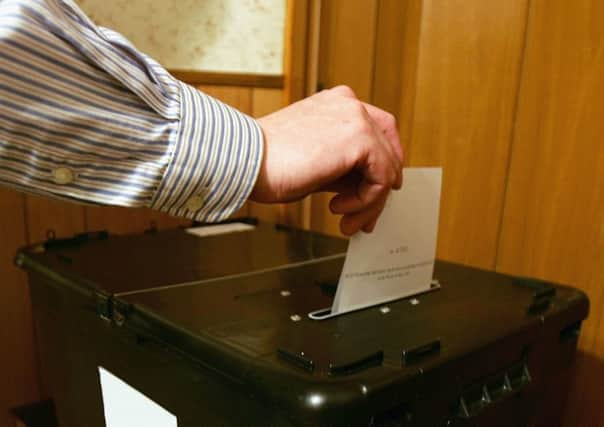General Election 2019: Why abstaining is perfectly reasonable – Bill Jamieson


Is there a respectable case for not voting in the upcoming election? When trust in party leaders and politicians is so low, why vote for any of them?
It may well be that rising support for the SNP in recent opinion polls is less a conversion to independence than Scots voter disenchantment with Westminster and a marked decline in respect for the UK Parliament.
Advertisement
Hide AdAdvertisement
Hide AdBut across the UK, there are many so disillusioned by the behaviour in the Commons and distrustful of MPs that not voting is coming to be seen as a frequently voiced and even respectable choice.
For a country once regarded as a parliamentary exemplar, one in which generations came to regard voting not only as a right but also a duty, we may be witnessing the transformation of “the silent majority” into one altogether more sullen and mutinous.
Lack of trust has become the default refrain of many. We have lost count of the number of times that Boris Johnson has gone against his own word – “out by Hallowe’en ... do or die” – and the occasions that he has “misspoke”.
Labour leader Jeremy Corbyn has constantly accused him of being untrustworthy. Yet on Monday of this week, he declared his opposition to a December election – and barely 24 hours later he was all for it.
Leaky riverboat heads for Niagara
Corbyn was for years a critic of the EU, and he struggled to endorse Remain in the EU referendum. Now Labour is predominantly a Remain party – or appears to be.
The Liberal Democrats supported the EU referendum back in 2016 and voted to enact Article 50. Then they supported a second referendum. Now their leader Jo Swinson has pledged to campaign vehemently for Remain.
Not all Conservatives are happy with this election. Like passengers on a leaky riverboat, they may have cheered when it finally broke free of bindweed on the bank only to hear once in mid-stream the roar of Niagara ahead.
They also question key features of the Withdrawal Deal which would keep Northern Ireland signed up to single-market regulations devised by Brussels and enforced by EU courts.
Advertisement
Hide AdAdvertisement
Hide AdAs if all this was not enough, can individual MPs be trusted when party discipline has broken down and several have quit the party and hopped, skipped and jumped to join other parties – The Independent Group, Change UK, and the Lib Dems?
Time was when standing for a party indicated commitment to a basic philosophy and set of beliefs. Yet MPs such as Sarah Wollaston, Rory Stewart, Anna Soubry, Chuka Umunna and Heidi Allen have deserted party constituents under a self-declared ‘Right to Roam’. Who can voters trust not to follow suit?
Blackford’s new record
Given this breakdown in party loyalties, it would seem perfectly respectable to choose not to vote. Many may also find themselves too afraid to voice an opinion in the face of bitter, accusatory campaigning and lack of civility.
How telling it was on the Scottish independence referendum campaign that many such older, ‘silent’ voters were overlooked by campaigners and pollsters. The result was not nearly as narrow as those, hearing only the noisy clamour of the activists, had supposed.
But do we really have a right to opt out? Exasperated as many may be, voting has been a hard-won right. And more often than not, there is no ‘perfect’ choice on offer but a choice of the least bad option.
And if we don’t vote, how can we complain if the result is another hung parliament, or the continuing appearance of all-too-wearisomely familiar protagonists on both sides whose attack lines have been so often repeated with neither charm nor humour that our own lips move before the soundbites are uttered?
Can we endure yet more of the relentlessly repetitive SNP Commons leader Ian Blackford on those College Green interviews, a phenomenon that has given rise to a new record: the shortest possible interval in recorded time – that between his appearance and the hitting of TV channel switch buttons across the country.
Gagging to vote? For once, the prospect of an election fails to excite me. Can’t wait till it’s over. See you on the other side!
